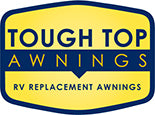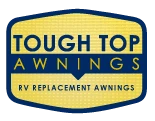Tips for Cheap(er) RVing
We are living in a difficult time and money can be tight! Full time RVers know that hitting the road does not mean cheap living! RVing and camping over the years have become more expensive and a fair amount of “upfront” and “as you travel” planning needs to be done to actually save money when traveling.
First, I won’t get into choosing a rigs and the cost associated. Everyone has different wants and needs (along with budget) and spending anywhere between $4,000 and up to $200,000 is not unreasonable!! We all have a checked off list to achieve the comforts we need.
So, you bought your rig, and its time to explore the USA and start living on the road!
What are some things you can do to save money?
1. SOLAR - This is the number one “upfront” thing I would do to save money as you travel. Solar allows for the flexibility to go off grid and not have to rely on RV Parks and other places that have electric. There is an upfront cost here but I believe it pays for itself fast! A solar system can get pricy so its important to figure out how much electricity you think you will need. One thing I did before I hit the road was make a list of all the things I needed to plug in and started to replace some of those items with alternatives; coffee maker and grinder with french press and hand grinder, solar lights ect. There is a lot of good info out there talking about wattage you might need, battery types, and solar panels.
2. TRAVEL SLOW - Maybe its not the best idea on a budget to say “I want to visit all 50 states” right out of the block. RVs are not fuel efficient and towing a trailer is not cheap either. I love traveling slow because you really get to know an area, you can sorta become a local…if you have the time use it! There is no rush unless you create one…and traveling slow saves on gas consumption.
3. WHERE TO LAY YOUR HEAD - After hitting the road, gas and finding a place to stay are the most expensive things to deal with. RV parks are anywhere between $35-$70 and sometimes more. State and National Parks and run up to $35-$45 a night. That does not seem bad, but times that by 30 and if you are on a budget that’s costly. This is where the solar comes in, if you can go off grid there is a good chance some or most of the time you can camp for FREE! I traveled up Highway 395 in California and didn’t spend a dime on camping for 2 months. Even if you want to treat yourself even 1 time a week that’s a lot cheaper than paying every night for camping. There are lots of online resources to read about boondocking or dry camping, and also a few good sites and apps to help you find your free camping spot…..my go to site/app is Campendium.
4. GROUPS AND MEMBERSHIPS - This mostly applies to camping as well, with lots of potential for savings. If dry camping or boondocking is not your thing, memberships like Good Sam, Thousand Trails, Harvest Host will all bring savings with RV parks, camping and other places to stay. If you are 62 or over remember National Parks and National Forests offer half off camping. And if you plan on seeing many of our National Parks, get a pass, a one time $80 fee is cheaper than $20 each time you visit (and sometimes more). If you don’t know about these groups, links are listed below, plus a couple more to see which one(s) might be a good for for you.
5. REMEMBER, YOU ARE NOT ON VACATION! - I think this is a mistake many newbies make! If you are a full timer, this is your life, not everyday is an adventure, you don’t need to treat full timing like you are on a week vacation. Do actives that are free; hiking, beach walks, using your parks pass (which includes too National Monuments), visiting historical sites, a night-time fire, free museums and such. Pace yourself and your money, don’t eat out every night or feel the need you NEED to have a epic adventure everyday!
6. DOING YOUR OWN MAINTENANCE PROJECTS - Having the know how to fix things will treat you well full timing and traveling. If you can fix your rig when it need it or breaks down will save a lot of money…. Even if it’s just changing the oil. The truth is your rig will break down, or something on the inside will need to be fixed or repaired. One good thing about RVing is there are a TON of how to videos and blogs to help you. The RVgeeks is the best resource to find videos from everything to batteries, fixing your fridge, black tanks and everything in-between.
From all the stories I’ve been told, RVing, camping and traveling is not what it was 25-30 years ago but that does not mean we cannot have fun adventures, see this beautiful country and do it without going broke. If you have any good tips about saving money post in the comments. Thanks and happy RVIng
RESOURCES:
Sites I mentioned above plus a few others
Good Sam - https://www.goodsam.com/club/
Thousand Trails - https://thousandtrails.com
Harvest Host - https://harvesthosts.com (look for app as well)
Boondockers Welcome - https://www.boondockerswelcome.com
Campendium - https://www.campendium.com (look for app as well)
The RVgeeks - https://www.thervgeeks.com
National Parks Pass - https://www.nps.gov/planyourvisit/passes.htm
Casino Camper - https://www.casinocamper.com
First, I won’t get into choosing a rigs and the cost associated. Everyone has different wants and needs (along with budget) and spending anywhere between $4,000 and up to $200,000 is not unreasonable!! We all have a checked off list to achieve the comforts we need.
So, you bought your rig, and its time to explore the USA and start living on the road!
What are some things you can do to save money?
1. SOLAR - This is the number one “upfront” thing I would do to save money as you travel. Solar allows for the flexibility to go off grid and not have to rely on RV Parks and other places that have electric. There is an upfront cost here but I believe it pays for itself fast! A solar system can get pricy so its important to figure out how much electricity you think you will need. One thing I did before I hit the road was make a list of all the things I needed to plug in and started to replace some of those items with alternatives; coffee maker and grinder with french press and hand grinder, solar lights ect. There is a lot of good info out there talking about wattage you might need, battery types, and solar panels.
2. TRAVEL SLOW - Maybe its not the best idea on a budget to say “I want to visit all 50 states” right out of the block. RVs are not fuel efficient and towing a trailer is not cheap either. I love traveling slow because you really get to know an area, you can sorta become a local…if you have the time use it! There is no rush unless you create one…and traveling slow saves on gas consumption.
3. WHERE TO LAY YOUR HEAD - After hitting the road, gas and finding a place to stay are the most expensive things to deal with. RV parks are anywhere between $35-$70 and sometimes more. State and National Parks and run up to $35-$45 a night. That does not seem bad, but times that by 30 and if you are on a budget that’s costly. This is where the solar comes in, if you can go off grid there is a good chance some or most of the time you can camp for FREE! I traveled up Highway 395 in California and didn’t spend a dime on camping for 2 months. Even if you want to treat yourself even 1 time a week that’s a lot cheaper than paying every night for camping. There are lots of online resources to read about boondocking or dry camping, and also a few good sites and apps to help you find your free camping spot…..my go to site/app is Campendium.
4. GROUPS AND MEMBERSHIPS - This mostly applies to camping as well, with lots of potential for savings. If dry camping or boondocking is not your thing, memberships like Good Sam, Thousand Trails, Harvest Host will all bring savings with RV parks, camping and other places to stay. If you are 62 or over remember National Parks and National Forests offer half off camping. And if you plan on seeing many of our National Parks, get a pass, a one time $80 fee is cheaper than $20 each time you visit (and sometimes more). If you don’t know about these groups, links are listed below, plus a couple more to see which one(s) might be a good for for you.
5. REMEMBER, YOU ARE NOT ON VACATION! - I think this is a mistake many newbies make! If you are a full timer, this is your life, not everyday is an adventure, you don’t need to treat full timing like you are on a week vacation. Do actives that are free; hiking, beach walks, using your parks pass (which includes too National Monuments), visiting historical sites, a night-time fire, free museums and such. Pace yourself and your money, don’t eat out every night or feel the need you NEED to have a epic adventure everyday!
6. DOING YOUR OWN MAINTENANCE PROJECTS - Having the know how to fix things will treat you well full timing and traveling. If you can fix your rig when it need it or breaks down will save a lot of money…. Even if it’s just changing the oil. The truth is your rig will break down, or something on the inside will need to be fixed or repaired. One good thing about RVing is there are a TON of how to videos and blogs to help you. The RVgeeks is the best resource to find videos from everything to batteries, fixing your fridge, black tanks and everything in-between.
From all the stories I’ve been told, RVing, camping and traveling is not what it was 25-30 years ago but that does not mean we cannot have fun adventures, see this beautiful country and do it without going broke. If you have any good tips about saving money post in the comments. Thanks and happy RVIng
RESOURCES:
Sites I mentioned above plus a few others
Good Sam - https://www.goodsam.com/club/
Thousand Trails - https://thousandtrails.com
Harvest Host - https://harvesthosts.com (look for app as well)
Boondockers Welcome - https://www.boondockerswelcome.com
Campendium - https://www.campendium.com (look for app as well)
The RVgeeks - https://www.thervgeeks.com
National Parks Pass - https://www.nps.gov/planyourvisit/passes.htm
Casino Camper - https://www.casinocamper.com

